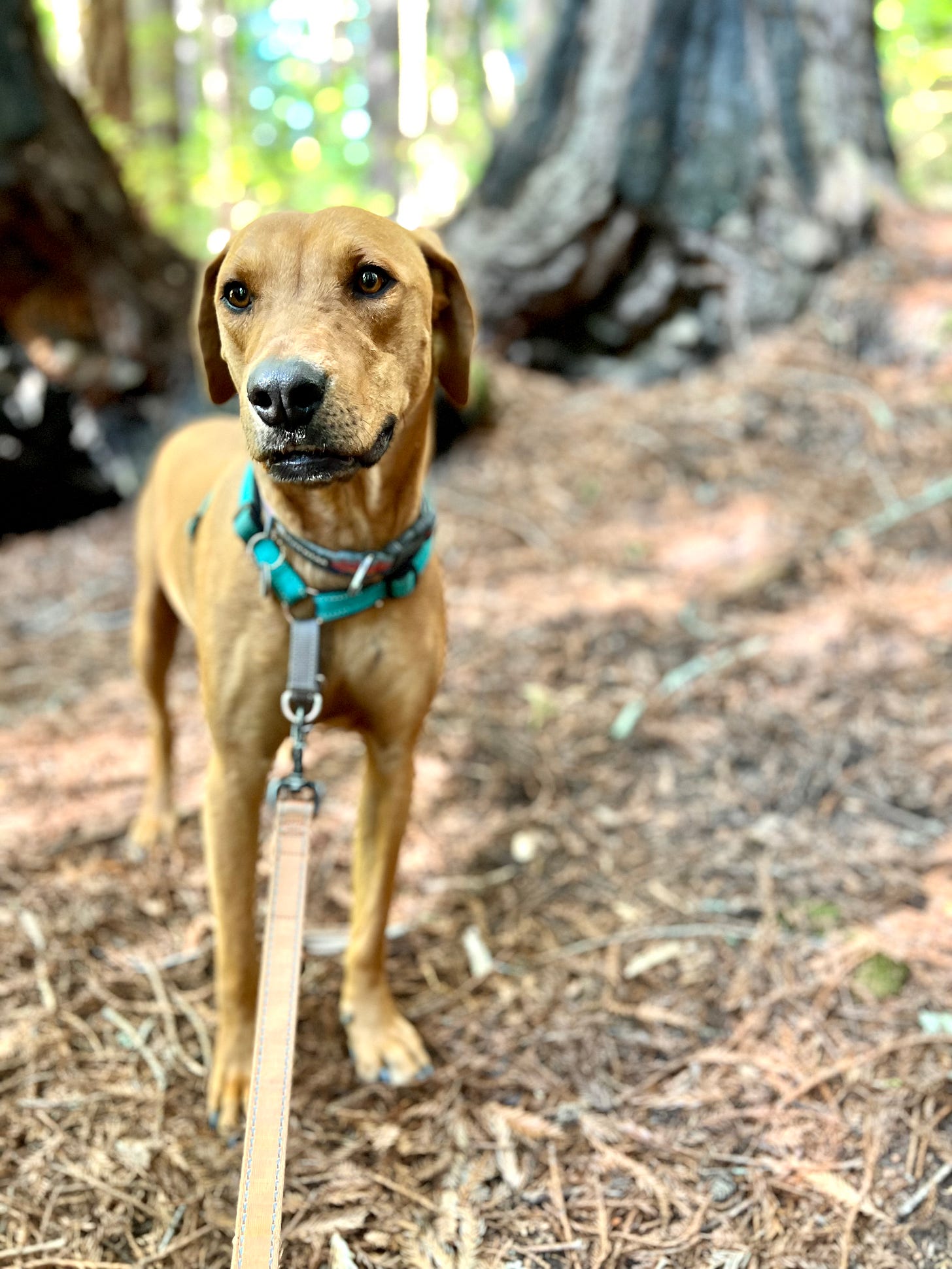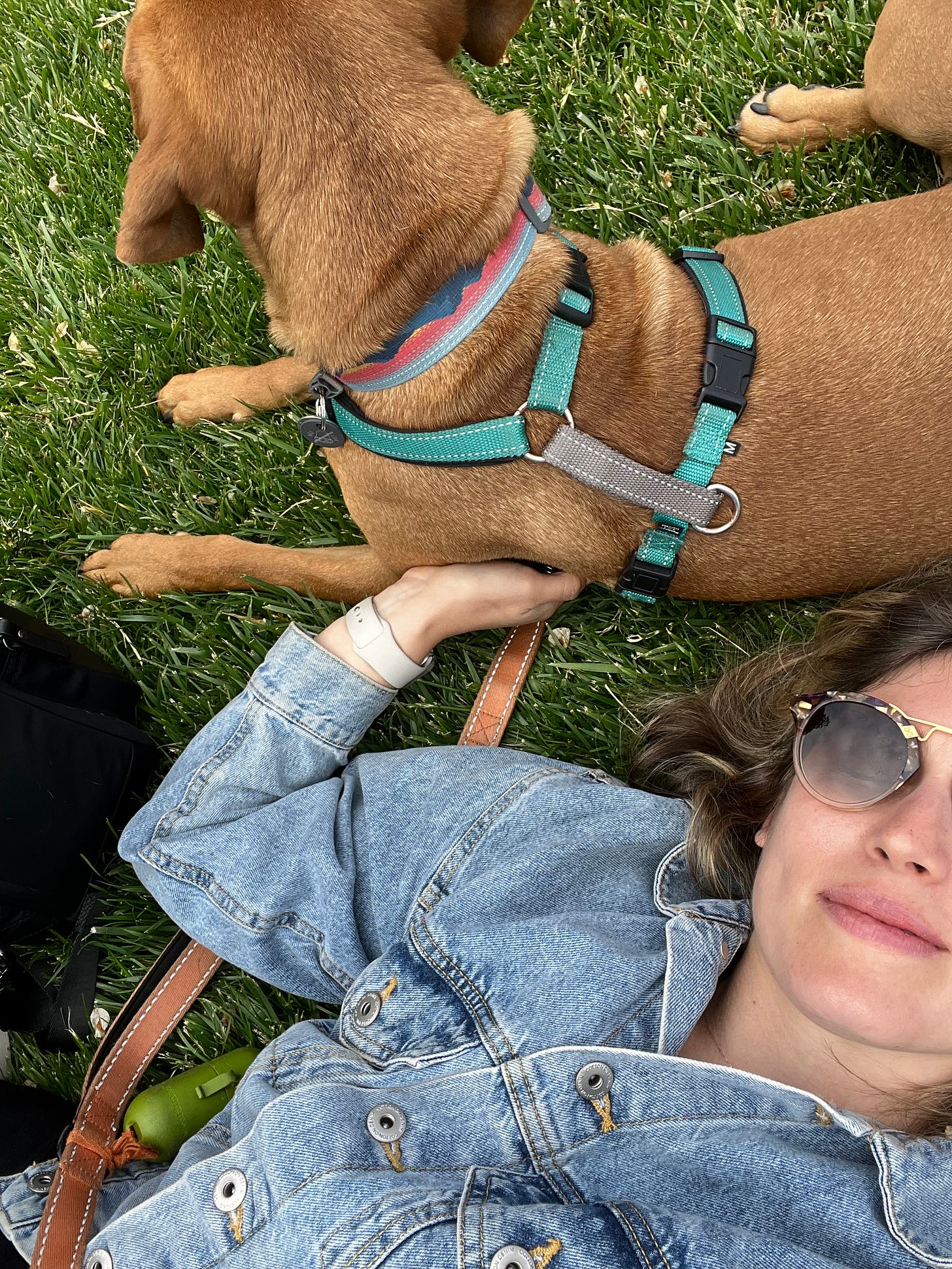At the end of May, I began a new job. Huge move. I left something so stable, something where I knew exactly what I would need to do to advance, and jumped off of a cliff to “theinbetween,” ultimately landing at an organization dedicated to improving public policy so that blockchain (crypto) can innovate and thrive. Totally different from where I was, completely unknown, less structured than a 1200-lawyer law firm, and incredibly exciting. Between exiting and entering each end of this dichotomy, I gratefully sat in the liminal space. “Theinbetween.”
The night before my last day at Covington, my lower back flared up for no apparent physical reason (other than potentially not stretching after a hike that day - still doubtful that was the cause). I have discovered that this is one way anxiety manifests in my body. I wasn’t feeling anxious on the surface. My conscious brain felt very excited for my weeks off, anticipating all of the yoga, hiking, and reading I would do. But my body felt something different. I knew right away that the pain was emotional — anxiety — and I did all the things to try to “release” this emotion. Most of you will not be surprised to learn that I did breathwork, a daily practice of stretching and rolling around on the floor, journaling, meditating, acupuncture, and cranial sacral therapy (that was a new one for me). I knew my anxiety stemmed from jumping into the unknown of a new job, and I very consciously worked with that feeling, but to no avail — the discomfort stuck.
During one of my cranial sacral therapy sessions, my magician of a therapist suggested that I was living in the “liminal space.” I hadn’t put words to it until that moment. This space feels different from the anticipation (anxiety) of beginning something new. Rather, it is more destabilizing. The feeling of not having landed after jumping. The feeling of continuing to slowly fall. The feeling when you are riding a train, approaching the station, and another train leaves the station at the same time, and moves right alongside the train you are in. You watch from your window. The train you occupy slows down, while the train opposite you speeds up, both slowly. At one point, you reach the same speed. Eventually, you pass each other and you are able to land.
During “theinbetween,” I proudly gave myself permission to rest (albeit not without a fight and over-scheduling myself for the first ten days). My lower back issue forced me to allow myself not to exercise intensely until my body felt ready and to be present to my needs. By the end of my few weeks off, my body had recovered.
As Pema Chodron writes:
Our discomfort arises from all of our effort to put ground under our feet, to realize our dream of constant okayness. When we resist change, it’s called suffering. But when we can completely let go and not struggle against it, when we can embrace the groundlessness of our situation and relax into its dynamic quality, that’s called enlightenment, or awakening to our true nature, to our fundamental goodness. Another word for this is freedom—freedom from struggling against the fundamental ambiguity of being human.
I left for DC just about two weeks ago for my first week of work and felt energized, with raging curiosity. Reflecting on how just recently, I was in “theinbetween.” How spending time in the liminal space was crucial for me to rebuild the energy required for change. These cycles are self-generating. Living in the liminal space allows me to now relish in the newness.
Reflection Prompts:
When have you lived in the liminal space and what new energy resulted from it?
Do feelings about change/transition ever show up in your body? How?
If you had your ideal week of rest, how would you spend your time?
Of course, have to include a few photos from “theinbetween” (mostly of Tabor):

Action:
As we reel from the recent horrible acts of totally senseless gun violence, below are some organizations that are working toward reducing gun violence in this country. It makes zero sense to me why those who follow the “originalism” approach to the Constitution will argue that applies to this issue: there were no automatic weapons in 1791.











